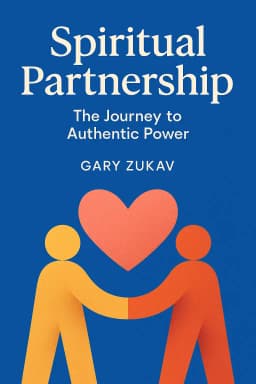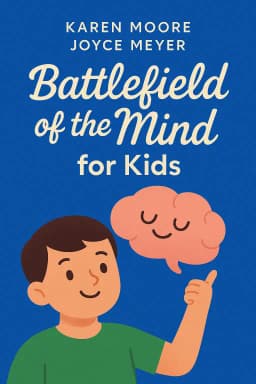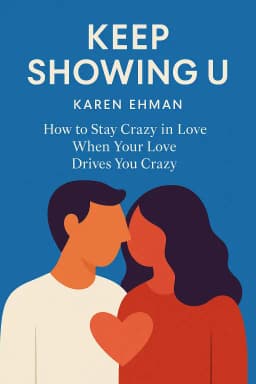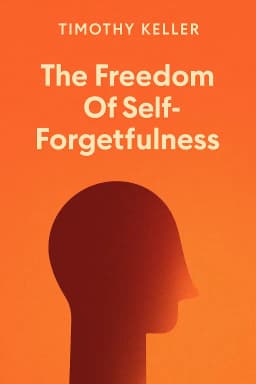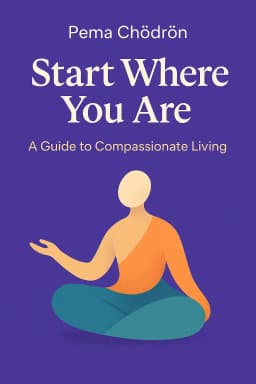
The Accidental CEO
Golden Hook & Introduction
SECTION
Daniel: Alright Sophia, if you had to describe Michael Singer's 'The Surrender Experiment' in one brutally honest, roasting sentence, what would it be? Sophia: Easy. 'How to accidentally become a millionaire by avoiding all responsibility.' Is that close? Daniel: Hilariously wrong, but also... not entirely. And that's exactly what we're diving into today. Sophia: I’m glad my cynicism has a place here. Because on the surface, the story is just wild. Daniel: It is. We're talking about The Surrender Experiment by Michael A. Singer. And what makes this story so unbelievable is that Singer wasn't some lifelong spiritual guru. He was a grad student in economics at the University of Florida in the early 70s who had a profound inner awakening, which really started with a panic attack. He basically retreated to the woods to meditate, and then... things got weird. Sophia: Weird is one word for it. From a hut in the woods to the CEO of a publicly traded software company, Medical Manager, that was eventually acquired by WebMD. That is not a career path you see on LinkedIn. It sounds more like a lottery ticket than a life plan. Daniel: Exactly. And the book's core premise is that he had no plan. His only plan was to surrender. It all started with a very simple, almost desperate decision to deal with the non-stop, neurotic chatter in his head.
The Radical Premise: Silencing the Inner Roommate
SECTION
Sophia: Okay, let's start there, because "dealing with the chatter" is something everyone can relate to. What does he mean by that? Daniel: Well, in the early chapters, he describes this constant state of inner turmoil. He has this voice in his head, as we all do, that's constantly judging, complaining, fearing, and desiring. It's a non-stop commentary on everything. He has a panic attack and realizes this inner voice is the source of his suffering. Sophia: I think most people would call that... thinking. How do you get away from that? Daniel: His first attempts were what you might expect. He tries Zen meditation, he even considers running off to a monastery. He's trying to quiet the voice, to fight it, to control it. But nothing gives him lasting peace. The voice always comes back. Sophia: Been there. The more you tell yourself "don't think about the pink elephant," the more you see a herd of them. Daniel: Precisely. And then he has this breakthrough. It’s a subtle shift. He realizes he can't stop the voice, but maybe he doesn't have to listen to it. He starts to see this inner voice not as "him," but as a kind of roommate. A really annoying, neurotic roommate who lives in his head. Sophia: Hold on. 'Stop listening to the voice'? What does that even mean in practice? You can't just turn off your brain. Daniel: It's less about turning it off and more about disengaging. He describes it as simply noticing the voice is talking, but choosing not to follow its advice. The voice says, "I don't like this person," or "I'm scared of this situation," and he just... lets the thought pass without acting on it. He decides his life will no longer be run by his personal preferences and fears. Sophia: So it's like having that really annoying roommate in your head, and instead of arguing with them about whose turn it is to take out the trash, you just put on noise-canceling headphones and do what needs to be done anyway? Daniel: That's a perfect analogy. He decides to conduct an experiment: whatever life puts in front of him, he'll say yes. Whatever his inner roommate screams "NO!" to, he'll lean in. He will surrender to the flow of life, not the flow of his neurotic thoughts. Sophia: This sounds lovely for finding inner peace, maybe. But how does this lead to any kind of action in the real world? Doesn't this just make you incredibly passive? A leaf in the wind? Daniel: That's the million-dollar question, and he addresses it almost immediately. Early on, while he's trying to live this secluded, meditative life, the local community college asks him to teach an economics class. Sophia: The subject he was trying to escape from. Daniel: Exactly. His inner roommate goes ballistic. "No! We hate this! We want to meditate in the woods! This is the opposite of our plan!" Every fiber of his being wants to say no. But the opportunity was presented by life, not by his preferences. So, as part of the experiment, he says yes. Sophia: And he hated it? Daniel: He did the job. But the point wasn't whether he liked it. The point was that he was no longer a slave to his likes and dislikes. He was practicing letting a force greater than his own ego guide his actions. And that one small act of surrender, of saying yes when he wanted to say no, becomes the blueprint for the next forty years of his life.
The Serendipity Engine: Building a Life Without a Blueprint
SECTION
Sophia: Okay, so he says 'yes' to a teaching gig he doesn't want. I can see how that builds discipline. But how do you 'surrender' your way into building a massive spiritual center and a software company? That requires a plan, an ambition, a five-year-deck, right? Daniel: You would think so. But Singer's story argues the opposite. The Temple of the Universe, his spiritual center in Florida, was never planned. He bought a secluded piece of land for his own meditation. Then a woman named Sandy started showing up to meditate on his property. He didn't want her there; his inner roommate wanted solitude. But he surrendered. Soon, she brought friends. They started holding services. Eventually, a visiting guru told him a temple would be built there. The community literally built it around him while he just kept surrendering to what was happening. Sophia: That's a pretty incredible story. But this is where the book gets polarizing for some readers. It feels a little too... magical. A little too neat. Is he leaving out the hard work, the ambition, the failures? It can come across as a bit disingenuous. Daniel: I think that's a fair critique, and many readers have pointed it out. The book is a memoir, so it's inherently a curated narrative. But the story of his business career is even more unbelievable. He's living this monastic life, running the Temple, and one day someone asks him if he can figure out how to use one of those newfangled personal computers to help with their medical billing. Sophia: And his inner roommate said...? Daniel: "Absolutely not! We are a spiritual being, not a computer programmer!" But again, life presented it. So he sat down with a Radio Shack computer, taught himself to code, and created a program. That program became The Medical Manager. Sophia: And this is the part that sounds like a movie script. Daniel: It really does. He had no intention of starting a business. But then a distributor just happens to call him out of the blue, saying they'd heard about his software and thought it was the best they'd ever seen. That partnership launched the company. It grew and grew, eventually went public, and at its peak had over two thousand employees and hundreds of millions in revenue. All, he claims, from just saying yes to the next thing life put in front of him. Sophia: This is the point where my inner skeptic is screaming. It can't be that simple. It almost sounds like a form of prosperity gospel: 'just let go and the universe will make you a CEO.' It feels like it ignores the immense privilege required to even be in a position to have these kinds of opportunities fall into your lap. Daniel: And that is the most potent criticism of the book. Does this only work if you're a smart, educated white guy in America? The book doesn't deeply engage with that question. It stays focused on the internal experience. His argument is that the quality of the opportunities doesn't matter. The practice is about what you do with what you're given, whether it's an offer to be CEO or an offer to clean the toilets. For him, it just happened to be the former. Sophia: But at the same time, I have to admit there's something so appealing about the idea that you don't have to force everything. That you don't have to hustle and grind and claw your way to success. The idea that you could just align with a natural flow is... a relief. Daniel: It is. But the book has one more giant test to throw at this philosophy. Because it's easy to surrender when the flow is taking you to a bigger house and a successful IPO. What happens when the flow takes you straight into a federal investigation?
The Ultimate Test: Surrendering to the Void
SECTION
Sophia: Wait, what? A federal investigation? Daniel: Oh yes. This is the climax of the book, and it's where the philosophy truly gets tested. In 2003, at the height of his company's success, Singer gets a call from his in-house attorney. The FBI is raiding their offices. Sophia: Whoa. That is terrifying. My first instinct would be to panic, to fight, to control, to hire every lawyer on the planet. How do you possibly 'surrender' to that without just giving up? Daniel: That's the core of the final section. The situation was a nightmare. The government launched a massive investigation into his company's business practices. He was eventually indicted personally. The chapter is literally titled, "United States of America v. Michael A. Singer." He was facing the complete destruction of everything he had built, not to mention prison time. Sophia: Some legally-savvy readers have questioned his account of the legal proceedings, but let's set that aside for a moment. What did 'surrendering' here actually look like on a practical level? Did he just sit back and meditate while his life was on the line? Daniel: Not at all. And this is the most important clarification the book makes. Surrender is not passivity. He hired the best lawyers. He helped prepare a vigorous defense. He did everything a responsible person would do. The difference was his internal state. Sophia: Ah, so it's about the inner roommate again. Daniel: Exactly. The external actions were necessary. The surrender was internal. It was the practice of not letting the fear, the anger, and the "this isn't fair!" narrative consume him. He describes moments of sitting with his lawyers, who are panicking about a new development, and he is the calmest person in the room. Not because he didn't care, but because he had spent decades practicing not getting hijacked by his own mind. Sophia: So his version of surrender wasn't inaction. It was right action, but without the internal panic and resistance that usually accompanies it. It was doing what was necessary from a place of clarity instead of fear. Daniel: You've got it. He treated the entire ordeal as another event life was presenting. A terrifying, life-altering event, but an event nonetheless. He had to show up for it, serve it, and let go of the outcome. He had no control over whether he'd be found guilty or innocent, but he had total control over whether he would let the situation destroy his inner peace. Sophia: And what happened in the end? Daniel: After years of legal battles, the charges against him were ultimately dropped. The company was cleared. But he says, and this is the key, that even if he had gone to prison, the experiment would have been the same. The goal was never a specific outcome. The goal was freedom from the tyranny of his own mind.
Synthesis & Takeaways
SECTION
Daniel: Ultimately, the story suggests surrender isn't about outcomes—getting rich or avoiding trouble. It's about freeing yourself from that internal tyrant, the voice of fear and preference that runs our lives. The external success, and even the external crisis, were just the curriculum. They were the gym where he worked out his surrender muscle. Sophia: So the real experiment wasn't about building a company; it was about dismantling the ego. The business and the legal drama were just spectacular byproducts of that internal work. Daniel: That's the core message. The perfection of life he talks about isn't that life will always be pleasant. It's that life is the perfect teacher, always giving you exactly what you need to grow, if you're willing to not resist the lesson. Sophia: It really makes you wonder. We spend so much energy, so much anxiety, trying to control every little detail of our lives, trying to force outcomes. What if we just... stopped? What energy would be freed up if we surrendered to just one thing life is presenting us right now, even if it's uncomfortable? Daniel: That's a powerful question. And it doesn't have to be an FBI raid. It could be traffic, a difficult conversation you've been avoiding, or a project at work you don't want to do. The practice is the same. We'd love to hear what our listeners think. What's one small thing you could practice surrendering to this week? Let us know. Sophia: This is Aibrary, signing off.
